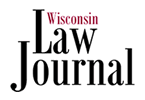
The media is clamoring about record high foreclosure rates. We hear that foreclosures are up 50 percent or 75 percent compared to the prior year, or some similar estimate. Those numbers sound horrible. But put in perspective relative to all homeowners and home mortgages, the numbers are very low.
According to CNN, there were an estimated 938,000 homes in foreclosure at the end of 2007, which is about 2 percent of mortgages. This is one of the higher estimates of foreclosure rates, and most experts put the current foreclosure rate at about 1 percent of all mortgages.
Indeed, foreclosures are not a good thing and rising foreclosure rates are bad. Yet it’s clear that this “crisis” isn’t affecting 98 percent to 99 percent of homeowners directly. Can it really be a crisis?
Fraud or not?
Of the 1 percent to 2 percent of homeowners who are in foreclosure, how many of them are in that situation because of shady mortgage brokers? How many had life changes that caused financial troubles? How many bought houses that they couldn’t really afford? How many are simply poor money managers who have financial troubles across the board?
I’d venture to guess that those four questions present the most likely reason that homes are currently in foreclosure. Was widespread fraud on the part of mortgage companies and brokers the cause of most of the foreclosures? I doubt it, but the Fed is attacking this part of the subprime mortgage problem nonetheless.
It’s easy to put the blame on mortgage companies. Someone must be to blame for the problems of homeowners, and it’s hard to put the blame on someone who is soon-to-be homeless. Yet the banks and mortgage companies are easy scapegoats, and I suspect that the instance of fraud perpetrated by their employees and contractors is lower than believed by the general public.
The new rules
The new rules apply to mortgage lenders of all types, including banks and brokers. Under the rules, prepayment penalties for subprime borrowers cannot be assessed if the monthly payment on a mortgage could change in the first two or four years.
Risky borrowers (those typically receiving subprime loans) will be required to escrow money for property taxes and insurance, and lenders could not allow the borrowers to opt out of escrowing these funds.
“Stated income” mortgages, which do not require the verification of borrowers’ actual earnings and wages, could no longer be issued. Borrowers will be required to prove their income and sources of income.
Lenders will also be prohibited from issuing mortgages that rely on a future refinance to be affordable to the borrower. This means that the mortgage company will have to determine the borrower’s ability to repay the mortgage strictly from real sources of income, and not from dipping into equity in the future.
It appears that the Fed thinks home buyers need to be protected from mortgage companies. I suspect many home buyers just need to be protected from themselves and their own foolish money choices. So a new set of regulations will affect all people seeking mortgages, but will it really prevent fraud?
Fraud prevention?
Those intent on committing fraud will find a way to do it, in any industry. I’m not trying to minimize the fact that some borrowers were victims of fraud on the part of mortgage companies, having information on their applications altered or entering into mortgages with terms about which they were misled.
It’s important to realize, however, that regulations can only do so much to prevent fraud.
The lenders who were honest all along will likely continue to be honest in their business practices. The companies and brokers who have committed fraud in the past can easily find a way to circumvent these regulations.
One obvious obstacle to the new rules is the problem of monitoring and enforcing them.
Who will oversee the lenders to make sure they’re not breaking any of the rules? Will audits be done on lenders to ensure compliance? Will the audits allow for manipulation by lenders so that bad behavior can go undetected?
Government regulation is not always the solution to the problems of consumers. More rules will end up costing consumers more money, as lenders incur costs related to compliance and pass those costs onto customers. Is the minimal protection offered by these rules worth the cost to consumers, especially when so many consumers weren’t affected by fraud committed by lenders?
There has to be a better way to stop fraud in the mortgage industry, and it has to start with conscientious consumers. They must be diligent in understanding the mortgages they enter into and they must report any improprieties they encounter. Consumer awareness is likely to do more to prevent mortgage fraud than some well-meaning, but misguided new rules.



